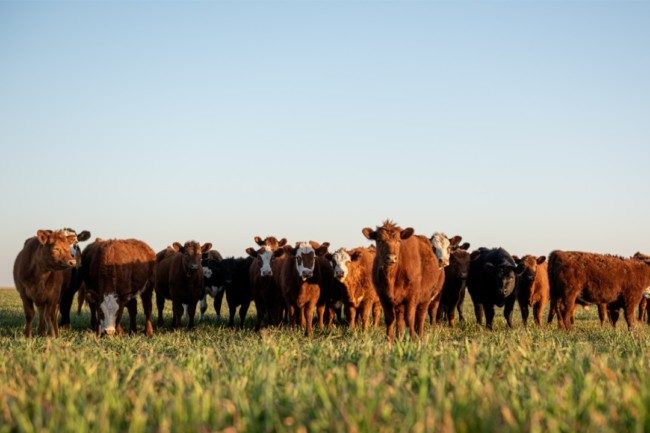KANSAS CITY, MO. — The American Hereford Association (AHA) announced a partnership with Colorado State University (CSU) to conduct research that will help reduce beef’s environmental footprint. Specifically, the AHA-CSU cooperative research will enhance understanding of the genetic differences in seedstock relative to enteric methane production and nitrogen excretion. The research includes identifying selection tools that can help reduce beef’s carbon emission.
“As individual cattle producers and as the collective beef industry, we will continue to be asked to do more with less, as it relates to environmental and economic sustainability,” said Jack Ward, executive vice president of AHA. “That’s why we’re excited to begin this cooperative research agreement with Colorado State University. It leverages decades of AHA research and data collected by AHA members aimed at characterizing genetics associated with production efficiency, which plays a key role in environmental and economic sustainability.”
AHA is providing data on individual feed intake records collected through its National Reference Sire Program since 2010. In addition, in 2001, AHA began whole-herd reporting to secure complete calf crop information and to eliminate reporting bias, Ward said.
AHA reported that previous research shows methane emission, as a genetic trait in cattle, to appear to be moderately heritable with genetic correlations to economically relevant production traits. Direct emissions from the animal agriculture sector accounts for 3.8% of US greenhouse gas (GHG) emissions, according to the nation’s Environmental Protection Agency. Enteric methane accounts for approximately 27% of methane emissions in the United States. Research suggests genetics play a significant role in nitrogen excretion by cattle, and when selected for, an individual animal’s environmental footprint can be reduced, AHA said.
“Often, we hear criticism leveled at the beef industry regarding greenhouse gas emissions and the impact of cattle on the environment, but with little context,” said Mark Enns, a beef cattle geneticist at CSU and a key member of the research team. “Cattle also sequester carbon and contribute to environmental health. This project will contribute to the beef cattle industry’s goal of demonstrating carbon neutrality by 2040.”
Enns claimed the project has potential to pave new paths of revenue for cattle producers. These could include such things as verified sustainable production claims, in addition to commonly discussed carbon credits.
“CSU is involved in this project because we are passionate about beef production and the beef industry, and the societal benefits it brings from the upcycling of human-inedible plant materials and byproducts into high-quality protein,” Enns said. “From a genetic improvement standpoint, CSU has a long history of new trait development and delivery of selection tools to the industry. As such, we feel we have much to contribute in this realm, striving to produce cattle that meet consumer demands, yet have a smaller environmental footprint.”
Kim Stackhouse-Lawson, director of CSU’s AgNext, which is a research collaborative developing sustainable solutions for agriculture, said, “Beef industry stakeholders including the National Cattlemen’s Beef Association have committed to improving the environmental impact of US cattle production. This project aims to develop a selection tool for the American Hereford Association and the broader cattle industry that helps producers identify genetics that will have reduced greenhouse gas emissions without sacrificing animal productivity.
“This project will also position the American Hereford Association as a sustainability leader in the beef industry through the development of genetic selection tools that can identify and inform breeders of genetics that meet climate goals without sacrificing quality, performance and efficiency.”
AHA and CSU will host a public webinar July 12, summarizing the current understanding of the role US beef cattle play in domestic and global greenhouse emissions. The webinar will provide more detail about specific beef cattle traits associated with GHG emissions, their heritability and potential use in selection tools to reduce the beef cattle industry’s carbon footprint.


